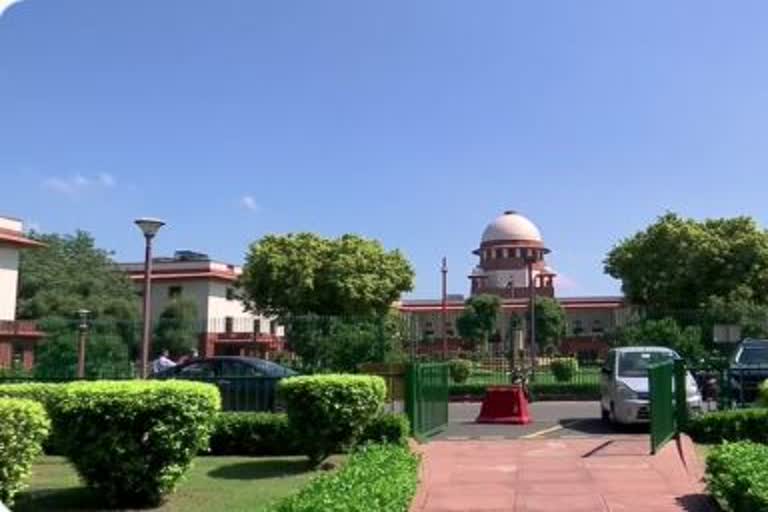New Delhi : The Supreme Court on Friday said that it will list the matter-- challenging the abrogation of Article 370 and the bifurcation of Jammu and Kashmir into two Union Territories-- for hearing after the Dussehra break.
"We will certainly list it," said a bench headed by Chief Justice of India (CJI) UU Lalit. The Dussehra break will remain from October 3 to October 9. The counsel mentioning the matter for urgent listing told the bench that this matter has been pending for a year. Earlier, former CJI NV Ramana had said that he will try to list in July a bunch of petitions challenging the validity of the law scrapping Article 370.
Also Read--3rd anniversary of Article 370 abrogation: J&K parties slam Centre, seek rollback of move
Various petitions are pending before the top court that challenges the validity of the law scrapping Article 370 of the Constitution and special status to Jammu and Kashmir and bifurcating the state into two Union Territories. Later, some petitions were filed against the government's action for delimitation in accordance with the Jammu and Kashmir Reorganization Act, 2019.
These petitions alleged that sweeping changes are being brought about by the Centre that has impacted the rights of a large number of people. Despite the fact that the petition is pending before the Supreme Court since 2019, the central government has taken some irreversible actions, the petitions added.
Also Read-J&K: Police claim decline in militancy after abrogation of Article 370
The petitions stated that the Centre has constituted a delimitation commission to mark boundaries in the territory for all the constituencies before an assembly election can be held. On August 5, 2019, the Central government announced its decision to revoke the special status of Jammu and Kashmir granted under Article 370 and split the region into two Union territories.
A five-judge bench in March 2020 had declined to refer to a larger 7-judge bench- a batch of petitions challenging the constitutional validity of the Centre's decision to abrogate provisions of Article 370 on August 5, saying that there were no reasons to refer the matter to a larger bench.
Also Read-Interview: Article 370 abrogation cannot be reversed by any party, says Altaf Bukhari
A number of petitions have been filed in the top court including those of private individuals, lawyers, activists and politicians and political parties challenging the Jammu and Kashmir Reorganisation Act, 2019, which split Jammu and Kashmir into two Union Territories -- Jammu and Kashmir, and Ladakh. (ANI)



